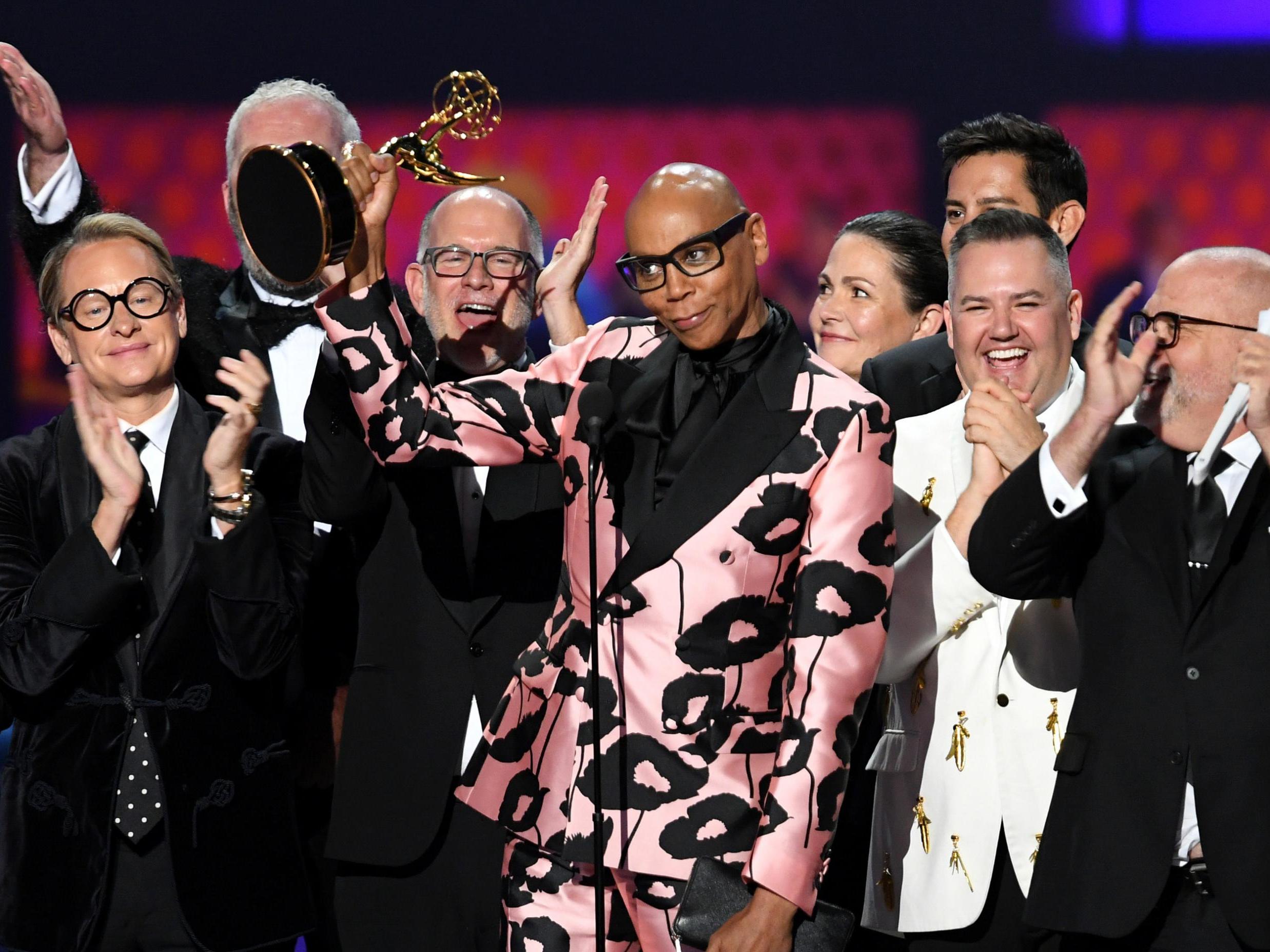RuPaul's white Drag Race crew shows what happens when you attempt diversity without inclusion
We put more faith in visibility than we should. It’s not adequate representation when people from marginalised backgrounds aren’t afforded the same opportunities as their peers


RuPaul is a man of many colours: As a model, drag queen, and the host of RuPaul’s Drag Race, he’s often found draped in jewel-tone gowns, tucked into neon bodysuits, and under towers of platinum synthetic hair. To look at RuPaul in full drag is to acknowledge histories that are often forgotten, like the ballroom and drag scenes of the 80s and 90s or the performers and club kids who were vogueing long before Madonna. It’s the legacy of communities made up of predominantly queer and transgender people of colour like RuPaul who made space for themselves at a time where they were told they didn't belong.
On Sunday evening, however, his out of drag look was more subdued: As RuPaul took to the press room to discuss his show’s win at the Emmys, he was dressed in a glossy black shirt under a powder pink silk suit cut with wide lapels and patterned with inky-black poppies. Behind him stood a row of faces – his producers, his judging panel, his crew – and, as one journalist noticed, they were almost uniformly white.
“Do you feel like it’s important for [diversity] to be represented behind the scenes as well for a show like yours that is so diverse?” asked Essence’s Danielle Young. Fans of the show know what she meant: RuPaul’s Drag Race has always platformed contestants from a broad panorama of cultural and racial heritages. The wall of white faces behind RuPaul as he accepted his Emmy told a different story: Who was the real winner here?
It’s been four years since writer and activist April Reign starter #OscarsSoWhite to bring light to the racial imbalance in Hollywood, and we’re starting to see incremental changes in the industry: Billy Porter made international headlines as the first Black gay man to win a Lead Actor Emmy on Sunday night, and the Academy recently pledged that it would double the number of members from marginalised backgrounds by 2020. Even the success of Drag Race indicates a moving needle, albeit at a glacial pace: As RuPaul told Young in his press conference, “First of all, the host of our show is Black, gay, and a drag queen”.
Still, the sight of RuPaul bobbing in front of a mostly white and mostly male crew is not an exception in today’s television, but rather the rule: An Ofcom report last week showed that only 8 per cent of senior management roles in the UK television industry go to people of marginalised racial backgrounds, even though they make up 12 per cent of the national labour market. While diversity might mean there are more minorities in a room, there’s the very real danger that they’ll be the ones stuck there, passed over for promotions and left uncredited for their work.
When we talk about representation, we put more faith in diversity than we should: Does diversity matter if those from marginalised backgrounds aren’t afforded the same opportunities as their peers? Consider how easy it would be for a company to say that it employs the same number of men and women, when it would be more interesting to see where the women in an organisation work: Are they stuck in customer service and administrative support roles, or are they being offered the same opportunities to advance as their male colleagues are? Diversity without inclusion is false advertising: You might see our faces on a billboard, but when will you see our work and our stories celebrated?
Consider Pose, Ryan Murphy’s television drama and the show for which Billy Porter won his Emmy own Sunday. It follows Black and Latinx people living and working in the ballroom circuits to which Drag Race owes deeply. The show is intentionally inclusive: From casting queer and transgender performers like Porter, Mj Rodriguez, Indya Moore, and Dominique Jackson to hiring ballroom-veteran Leiomy Maldonado as a choreographer and Janet Mock as a writer and producer, Pose elevates both its cast and crew, allowing them to tell their stories and stories like theirs. They’re offered an opportunity to explore their perspectives on the screen, and they’re paid more than the lip service that diversity efforts often result in.
Stars of Drag Race have since spoken out, naming the show’s producers and executives of colour like Meesh Mills and Mandy Salangsang – the ones overlooked or in the background at the Emmys, and the ones who help to make the show what it is. They’re the names we need to remember and the faces we need to see: It’s thrilling to know that today’s youth of colour have a broader palette of role models to draw inspiration from, but if we’re stuck backstage or waiting in the wings, we risk being forgotten.
Join our commenting forum
Join thought-provoking conversations, follow other Independent readers and see their replies